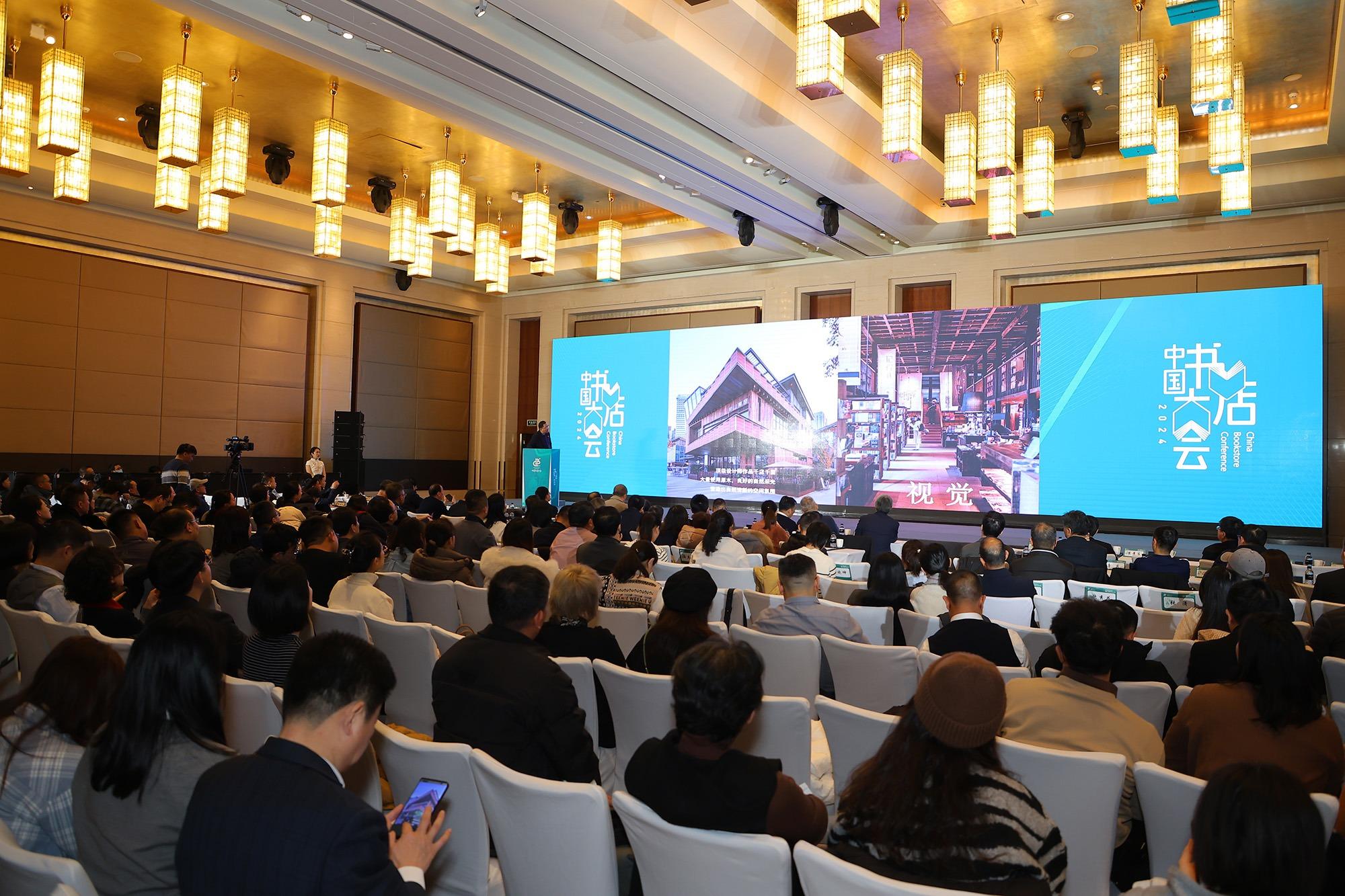 The 2024 China Bookstore Conference was held in Beijing on Jan 9 to discuss the role of innovation in the development of physical bookstores. (PROVIDED TO CHINA DAILY)
The 2024 China Bookstore Conference was held in Beijing on Jan 9 to discuss the role of innovation in the development of physical bookstores. (PROVIDED TO CHINA DAILY)
For years, traditional physical bookstores have been actively seeking to change since they are facing difficulties due to the rise of the internet, and especially of online marketing, which has become the main channel through which Chinese people buy books.
Jiang Chuanyang, chairman of the Zhejiang Xinhua Bookstore Group, spoke about this issue at the 2024 China Bookstore Conference, which was held in Beijing on Jan 9, to discuss the role of innovation in the development of physical bookstores.
Under the theme of "innovation, reshaping the value of bookstores", the annual event was organized by the Books and Periodicals Distribution Association of China, the Anhui Xinhua Distribution Group Holding, and Bookdao, a publishing and book market intelligence information platform.
According to Ai Limin, chairman of the Books and Periodicals Distribution Association of China, bookstores have made some progress. For example, the number of bookstores in China has remained relatively steady in recent years, with some cities seeing slight growth. Some innovative bookstores stand out and seem to have bright prospects.
Among them is the New City Bookstore, which opened in 2017.Despite the challenges resulting from the COVID-19 pandemic, it continues to grow, and now has four branches in Southwest China's Sichuan and Guizhou provinces.
Li Hui, a founder of the brand, analyzed the shortcomings of traditional bookstores. According to him, their value — like offering readers the chance to choose and buy books — can now be replaced by other channels, which has urged him to consider what bookstores can provide readers.
He has found that most of the customers who visit bookstores are women from 25 to 40, who often like reading, socializing, and who enjoy life. As a result, they have become the target customers for his chain.
Li's bookstores are built to satisfy their needs, and to allow them to enjoy a slow life. This means that they are no longer just places to buy books, but also cultural spaces.
Li pays attention to meeting the five sensory needs, namely visual, olfactory, acoustic, haptic and gustatory. As a result, his bookstores are carefully designed to be beautiful, smell pleasantly of flowers and coffee, with beautiful background music, wooden bookshelves which feel good to touch, and restaurants and cafes providing tasty food and drinks.
"As a result, our bookstores are not limited to being a place for selling books, but also serve as a cafe, restaurant, bar and theater with performances such as talk shows and cross talk shows (comedy stand-ups)," said Li.
Chen Lei, founder of the Hunzhi Bookstore, who is also a cartoonist, agreed with the idea of making his bookstore a cultural space.
He and his group of cartoonists have been making cartoons popularizing science and history, which have become well-received. Almost 40 million copies have been printed to date.
In 2020, Chen came up with the idea of opening a bookstore to communicate with readers. The store finally opened last year in Shanghai.
"We want to build an experience center where people can enjoy various forms of entertainment besides reading," said Chen.
Elements from his cartoons decorate the bookstore, and even its restaurant features dishes related to the cartoons.
As a creator, Chen also organizes interactive activities so that cartoonists in his group can communicate with readers, and teach them how to draw. "Some children have had fun in such activities, since they can see the cartoonists they like, and draw with them. And their parents can drink coffee in the coffee room," said Chen.


